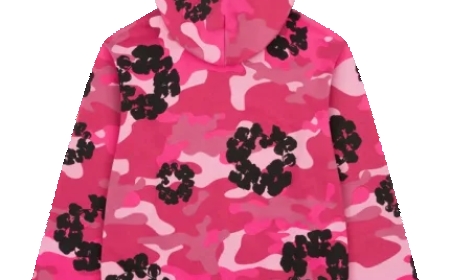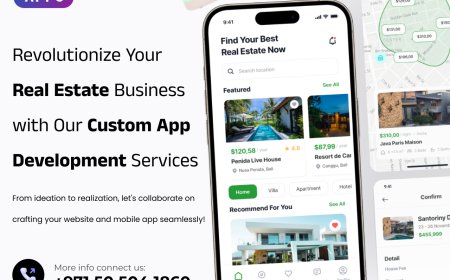How to find the best comedy open mics in Miami
How to Find the Best Comedy Open Mics in Miami Miami is more than sun, sand, and salsa—it’s a vibrant, fast-growing hub for live comedy. With its diverse cultural fabric, bilingual population, and thriving arts scene, the city offers a unique ecosystem for emerging and seasoned comedians alike. But finding the best comedy open mics in Miami isn’t as simple as walking into the nearest bar. The scen
How to Find the Best Comedy Open Mics in Miami
Miami is more than sun, sand, and salsa—it’s a vibrant, fast-growing hub for live comedy. With its diverse cultural fabric, bilingual population, and thriving arts scene, the city offers a unique ecosystem for emerging and seasoned comedians alike. But finding the best comedy open mics in Miami isn’t as simple as walking into the nearest bar. The scene is dynamic, often undocumented, and scattered across neighborhoods from Wynwood to Coral Gables. Whether you’re a comedian looking to hone your craft, a comedy enthusiast seeking authentic live laughs, or a content creator scouting talent, knowing where to look—and how to evaluate quality—is essential.
This guide is your comprehensive, step-by-step roadmap to uncovering the most reliable, high-energy, and artistically rewarding open mic nights in Miami. We’ll break down the hidden strategies, trusted tools, and insider tips that separate the mediocre from the must-attend. You’ll learn not just where to go, but how to identify venues that foster growth, attract quality audiences, and offer real exposure. By the end, you’ll have the confidence to navigate Miami’s comedy landscape like a local—and find the open mics that truly elevate your experience.
Step-by-Step Guide
1. Understand What Makes a Great Open Mic
Not all open mics are created equal. A “good” open mic isn’t just a place where people get on stage—it’s a space that encourages growth, respects performers, and draws engaged audiences. Look for these hallmarks:
- Consistent scheduling: Regular weekly or biweekly shows indicate stability and community support.
- Hosted by experienced comedians: A skilled host keeps the show moving, warms up the crowd, and gives constructive feedback.
- Time limits enforced: Professional venues cap sets at 5–7 minutes to ensure fairness and variety.
- No cover charge for performers: Reputable open mics don’t charge comedians to perform—only audiences pay.
- Positive audience energy: Laughter, applause, and attentive silence signal a receptive crowd.
Avoid venues that are overcrowded with unprepared performers, lack structure, or have a reputation for disengaged audiences. Quality open mics prioritize curation over volume.
2. Start with Online Community Hubs
The foundation of your search begins online. Miami’s comedy scene thrives on digital word-of-mouth. Begin with these platforms:
- Facebook Groups: Search for “Miami Comedy Open Mic,” “Miami Comedians United,” or “South Florida Stand-Up.” These groups are active, frequently updated, and often feature event posts with photos, set times, and performer testimonials.
- Reddit: Check r/Miami and r/Comedy. Users regularly post about new or hidden gems, share experiences, and warn against unreliable venues.
- Instagram: Follow local comedians, comedy collectives, and venues. Use hashtags like
MiamiOpenMic, #MiamiComedy, #FLComedy, and #SouthFloridaStandUp. Many performers post stories or reels from shows, giving you real-time visuals of the atmosphere.
When you find a post about an open mic, read the comments. Are people returning week after week? Are performers thanking the host? Are there questions about sign-up rules? These are indicators of a healthy scene.
3. Map Out Key Neighborhoods
Miami’s comedy scene is decentralized. Don’t limit your search to downtown. Each neighborhood has its own flavor:
- Wynwood: The epicenter of Miami’s arts scene. Venues here often blend comedy with live music, art openings, and craft cocktails. Look for spots like The Bodega or The Wynwood Yard.
- Downtown Miami: Home to established venues like The Comedy Club at The Fillmore and The Bodega. These spots attract a mix of locals and tourists, offering high foot traffic and professional production.
- Coral Gables: A more laid-back, intellectual crowd. Venues like The Biltmore Hotel’s courtyard or The Gallery at the Biltmore often host curated open mics with a focus on storytelling and observational humor.
- Miami Beach: Trendy and tourist-heavy, but home to some of the most consistent open mics. Check out The Comedy Cellar Miami Beach or smaller bars like The 1800 Ocean.
- Little Havana: Bilingual and culturally rich. Open mics here often feature Spanglish humor, cultural satire, and unique storytelling. Look for events at Ball & Chain or local cafés like Café La Trova.
Use Google Maps to search “comedy open mic Miami” and filter by recent reviews. Pay attention to photos uploaded by attendees—crowd size, stage setup, and venue ambiance tell you more than descriptions ever could.
4. Contact Local Comedy Schools and Collectives
Miami has several respected comedy training centers and collectives that serve as the backbone of the local scene. They often host or promote the best open mics:
- The Miami Improv: Offers weekly open mics and has a strong alumni network. Their performers frequently return to host or perform.
- Comedy Workshop Miami: Run by veteran comic Alex Pascall, this collective organizes curated open mics with strict sign-up rules and professional feedback.
- Floridian Comedy Collective: A nonprofit group that promotes diversity in comedy. Their open mics are known for inclusive lineups and supportive environments.
- Stand Up Miami: Focuses on emerging talent and often partners with local breweries and bookstores for unique venues.
Reach out via email or DM. Ask: “Do you host or recommend any open mics with strong performer support and audience engagement?” Most will respond with a calendar or private list. These insiders know which shows are worth your time.
5. Attend as an Audience Member First
Before you sign up to perform, go as a spectator. This is non-negotiable. Watching a few nights helps you:
- Understand the host’s style and pacing.
- Observe how the crowd reacts to different types of humor (observational, dark, political, bilingual).
- Identify which comedians get consistent laughs—and why.
- Learn the sign-up process: Is it first-come-first-served? Do you need to arrive early? Is there a limit on minutes?
Arrive 30–45 minutes before showtime. Talk to other audience members. Ask: “How long have you been coming here?” or “Who’s the best performer you’ve seen on this stage?” Their answers will reveal hidden reputations.
6. Track the Host and Regulars
The host is the heartbeat of the open mic. A great host doesn’t just crack jokes—they create a safe, energetic space for others to shine. Look for hosts who:
- Introduce performers by name and acknowledge their effort.
- Keep the show on time without rushing.
- Engage the audience with humor that sets the tone.
- Have a consistent following of other comedians who return weekly.
Follow the host on social media. If they’re posting about upcoming lineups, sharing clips, or thanking performers, it’s a sign of an active, respected show. Also, note which comedians appear regularly—they’re likely part of a tight-knit community that vets new talent.
7. Sign Up Strategically
Once you’ve identified a promising open mic, sign up properly:
- Arrive early: Many shows use a sign-up sheet or physical lottery. Being first in line guarantees a slot.
- Prepare 5–7 minutes: Overloading your set risks losing the crowd. Focus on 3–5 tight bits.
- Test your material: Run your jokes by a friend who’s been to the venue. Ask: “Would this land here?”
- Be respectful: Don’t interrupt others. Thank the host. Even if your set flops, professionalism builds reputation.
After your first time, follow up with the host. A simple “Thanks for the opportunity—I loved the vibe” goes a long way. Regulars are remembered.
8. Evaluate After Each Show
After each open mic, ask yourself:
- Did I feel respected as a performer (or attendee)?
- Was the audience engaged, or were people on their phones?
- Did the host provide feedback or just run the clock?
- Would I come back next week—or recommend it to a friend?
Keep a simple log: date, venue, host, crowd size, audience energy, performer quality, and your personal rating (1–5). Over time, patterns emerge. You’ll quickly identify which venues consistently deliver high-quality experiences.
Best Practices
Be Consistent, Not Just a One-Time Visitor
The best open mics reward consistency. If you show up every Tuesday, the host will remember you. The audience will recognize your name. Other performers will start to network with you. Comedy is a community sport. Showing up week after week—even if you’re nervous—builds credibility faster than any viral video.
Respect the Time Limits
Seven minutes isn’t a suggestion—it’s a rule. Going over disrupts the flow, delays others, and makes you look unprofessional. Practice your set with a timer. Edit ruthlessly. A tight 6-minute set with three strong jokes beats a 10-minute ramble with one laugh.
Engage With the Audience, Not Just the Mic
Eye contact, pacing, and energy matter as much as the punchline. Even in a small room, connect with the person in the front row. Smile. Pause. Let the laugh breathe. Audiences respond to authenticity—not just punchlines.
Network, Don’t Just Perform
After the show, talk to other comedians. Exchange Instagram handles. Ask who’s booking gigs. Offer to help with a new project. Miami’s comedy scene is small. The person you chat with after open mic might be your next collaborator, writer, or booker.
Record and Review Your Sets
Use your phone to record audio (with permission). Listen back: Where did you rush? Where did the silence feel awkward? What jokes landed better than expected? Self-awareness is the fastest path to improvement.
Be Open to Feedback
Not every comment will be kind. But even harsh feedback can be useful. If three different people say your opening joke doesn’t connect, it probably doesn’t. Don’t get defensive. Adapt. Comedy evolves through iteration.
Support the Venue
Buy a drink. Tip the bartender. Leave a good review. Venues rely on customer loyalty. The more you support them, the more they’ll support you—by giving you better time slots, promoting you on their page, or inviting you to their showcase nights.
Don’t Chase “Big Names”
It’s tempting to only attend open mics where famous comics appear. But those are usually showcases or ticketed events. The real growth happens at the grassroots level. The best comedians in Miami started at tiny bars with 12 people in the room. Focus on the process, not the prestige.
Tools and Resources
Essential Apps and Websites
- Eventbrite: Search “comedy open mic Miami” to find ticketed and free events with verified listings.
- Meetup.com: Look for comedy-focused groups like “Miami Comedy Jam” or “South Florida Comedy Network.” Many use Meetup to coordinate weekly shows.
- Google Maps: Search “comedy open mic Miami” and sort by “Most Reviewed” or “Recent.” Filter by “Open Now” to find tonight’s options.
- Instagram: Follow @miamicomedy, @floridacomedycollective, @miamistandup, and @thebodega.miami. These accounts post weekly lineups.
- Facebook Events: Use the search bar with keywords: “open mic,” “stand-up,” “Miami,” “free.” Sort by “Upcoming” and check the number of interested attendees.
- Comedy Central’s Local Listings: Though limited, Comedy Central sometimes features Miami venues on its “Find Comedy” tool.
Print and Digital Resources
- “Miami Comedy Guide” PDF (by Comedy Workshop Miami): A downloadable calendar updated monthly with venues, times, and hosts. Available via email request.
- “The Miami Comedy Scene” Newsletter: Sent weekly by local comic Maria Delgado. Includes venue reviews, performer spotlights, and booking tips. Subscribe at miamicomedynewsletter.com.
- Local Newspapers: The Miami New Times and Miami Herald’s “Arts & Culture” section occasionally feature open mic roundups.
Community-Driven Tools
- Google Sheets Shared by Comedians: Ask in Facebook groups for a “Miami Open Mic Tracker.” Many comedians maintain public spreadsheets with venue names, times, hosts, crowd size, and personal ratings.
- Discord Servers: Search for “Miami Comedy” on Discord. Several private servers exist for comedians to share tips, open mic alerts, and feedback. Join with a referral from an active member.
Audio and Video Tools for Self-Improvement
- Voice Memos (iOS) or RecForge II (Android): Simple, reliable audio recorders for capturing your sets.
- CapCut or InShot: Free apps to trim clips and add captions for social media sharing.
- Google Docs Template: Create a “Set Review” template with columns: joke, timing, laugh count, audience reaction, and revision notes.
Real Examples
Example 1: The Bodega – Wynwood
Every Thursday at 9 PM, The Bodega hosts a 90-minute open mic hosted by veteran comic Javi Rodriguez. With a capacity of 60, the room is always packed. Sign-up begins at 8 PM. The crowd is young, diverse, and vocal. Performers range from college students to ex-TV writers. Javi gives each comic a quick, personalized note after their set. One performer, Lena Torres, went from 2-minute sets to a 15-minute showcase in three months. She now books weekend gigs at The Comedy Club at The Fillmore. Her secret? She showed up every Thursday for six months, even when she bombed. She built relationships, not just jokes.
Example 2: Ball & Chain – Little Havana
Every second Saturday, Ball & Chain hosts a bilingual open mic called “Risa y Ritmo.” It’s a fusion of stand-up and live music, with performers switching between English and Spanish. Hosted by comedy duo “Los Chistes,” the show attracts a loyal crowd of Latinx audiences who respond to cultural humor. A newcomer, Diego Mendez, shared a bit about Miami’s Cuban coffee culture—and got a standing ovation. He was invited to perform at a local festival within a month. This venue proves that niche, culturally specific comedy can thrive in Miami if the community is respected.
Example 3: The Comedy Cellar Miami Beach – A Caveat
While The Comedy Cellar is a nationally recognized brand, its Miami open mic on Tuesday nights has a mixed reputation. The venue is beautiful, but the host often rushes performers and doesn’t engage the audience. Many comedians report that the crowd is distracted—tourists scrolling phones during sets. It’s a good place to test material for a broader audience, but not ideal for growth. One comic said, “I got two laughs. I got three messages from other comics saying, ‘That set was too loud.’” This example shows: even famous names aren’t always the best fit.
Example 4: The Gallery at The Biltmore – Hidden Gem
On the third Friday of each month, The Biltmore’s art gallery hosts a 7 PM open mic called “Words & Whiskey.” It’s quiet, intimate, and attracts poets, storytellers, and observational comedians. No alcohol is served—just coffee and pastries. The crowd is older, thoughtful, and deeply engaged. A performer who specializes in family stories found her voice here. She now tours Florida libraries with her show. This venue proves that the best open mics aren’t always the loudest—they’re the most intentional.
FAQs
Do I have to pay to perform at open mics in Miami?
No. Reputable open mics do not charge performers. If a venue asks for money to sign up, it’s likely a scam or a “pay-to-play” trap. Walk away.
How early should I arrive to sign up?
Arrive at least 45 minutes before showtime. Some popular venues fill up within 15 minutes. If you’re unsure, message the host on Instagram the day before and ask.
Can I bring a friend to watch?
Yes—most open mics welcome guests. But check the venue’s policy. Some have capacity limits. Don’t bring a large group unless invited.
What if I bomb my first set?
Bombing is part of the process. Every great comic has a story of a silent room. What matters is that you showed up. Go again. Adjust. Try a different joke. Comedy is a skill, not a talent.
Are there open mics for non-English speakers?
Absolutely. “Risa y Ritmo” at Ball & Chain and “La Noche del Chiste” at Café La Trova are fully bilingual. Many open mics welcome Spanglish material. Miami thrives on multilingual humor.
How do I know if a host is good?
A good host keeps the energy high, respects time limits, introduces performers warmly, and makes the audience feel included. If the host is on their phone, ignores people, or cuts sets short without reason, avoid the show.
Can I perform if I’m new to comedy?
Yes. Most open mics welcome beginners. In fact, they need them. Don’t wait until you’re “ready.” Start now.
Is there a dress code?
Most venues are casual. Wear what makes you feel confident. Avoid costumes unless it’s a themed night. The focus is on your words, not your outfit.
How long does it take to get booked after open mics?
There’s no timeline. Some comedians get booked within weeks. Others take a year. Consistency, professionalism, and growth matter more than speed. Keep showing up.
Where can I find open mics during holidays?
Many shows take breaks around major holidays. Check Facebook groups and Instagram stories in advance. Some venues host special holiday open mics—like “Thanksgiving Roast Night” or “New Year’s Eve Joke-a-Thon.”
Conclusion
Finding the best comedy open mics in Miami isn’t about finding the biggest stage—it’s about finding the right environment. It’s about the host who remembers your name, the crowd that laughs at your punchline, the fellow comic who texts you after your set to say, “That bit about the bus driver? Brilliant.”
This guide has given you the tools, the neighborhoods, the strategies, and the real stories to navigate Miami’s comedy scene with confidence. But the real work begins now. Put on your shoes. Show up early. Say hello. Try again. The next great Miami comic isn’t waiting for the perfect moment—they’re already at The Bodega, signing up at 8:15 on a Thursday night.
Don’t just look for open mics. Build your place in them.























